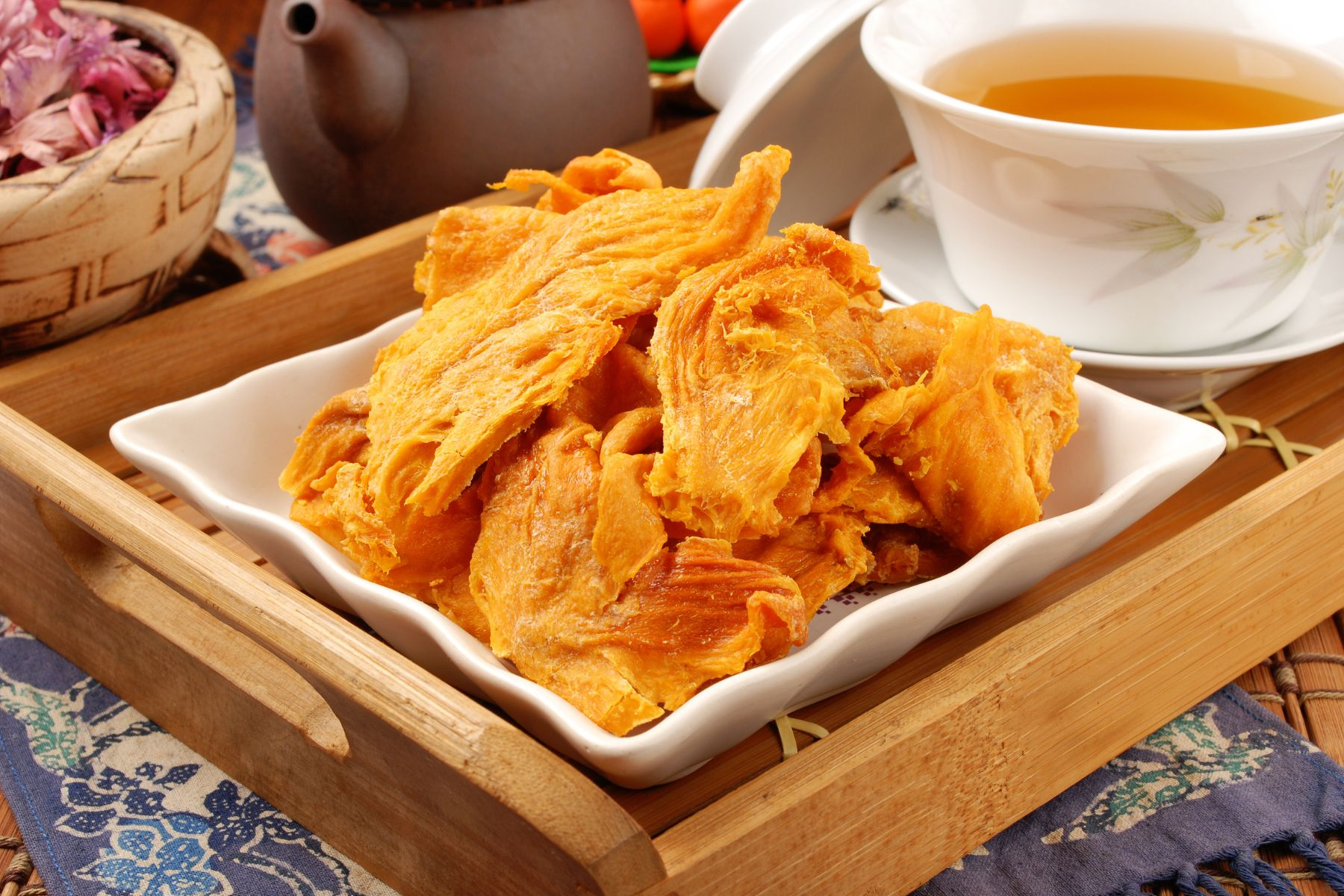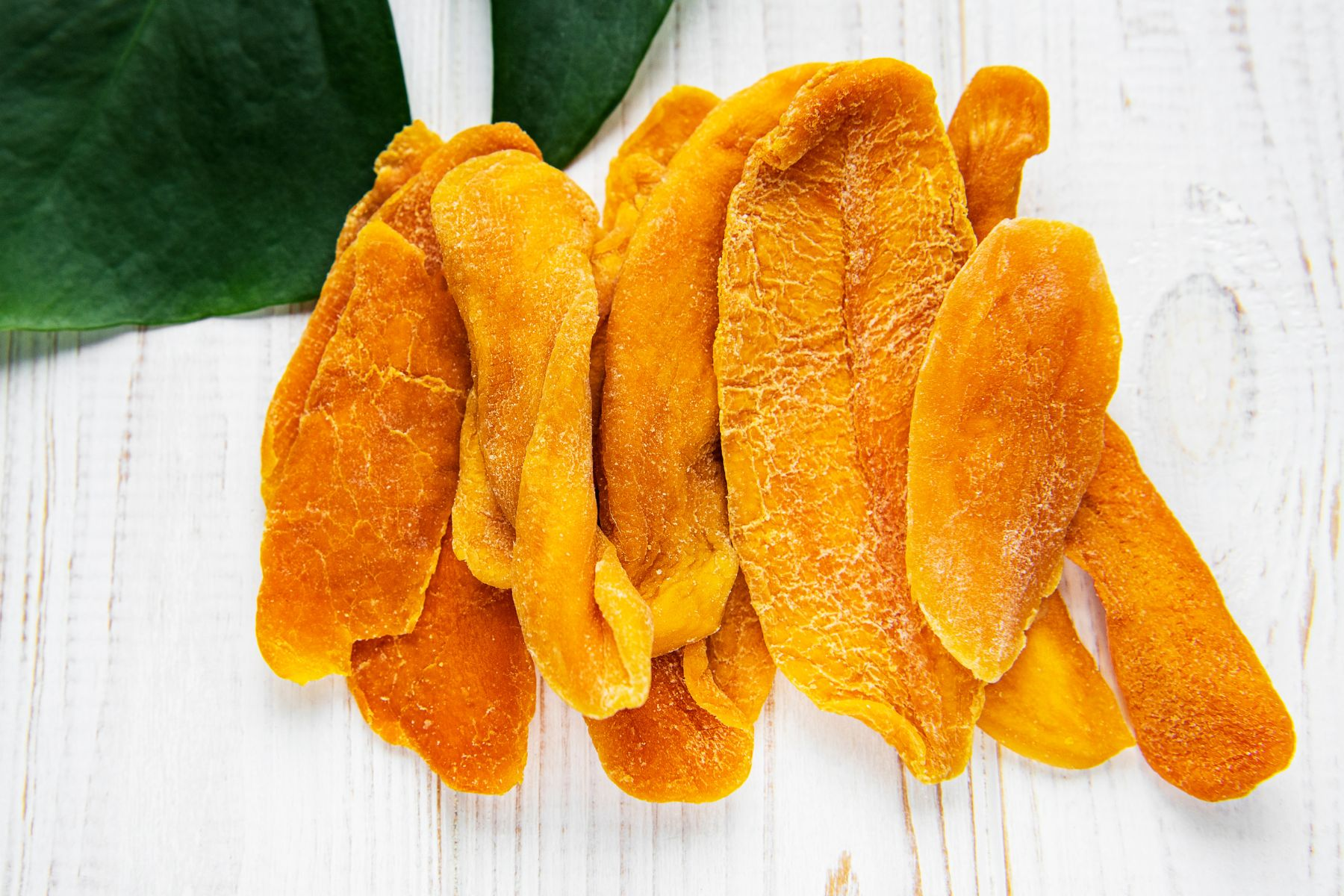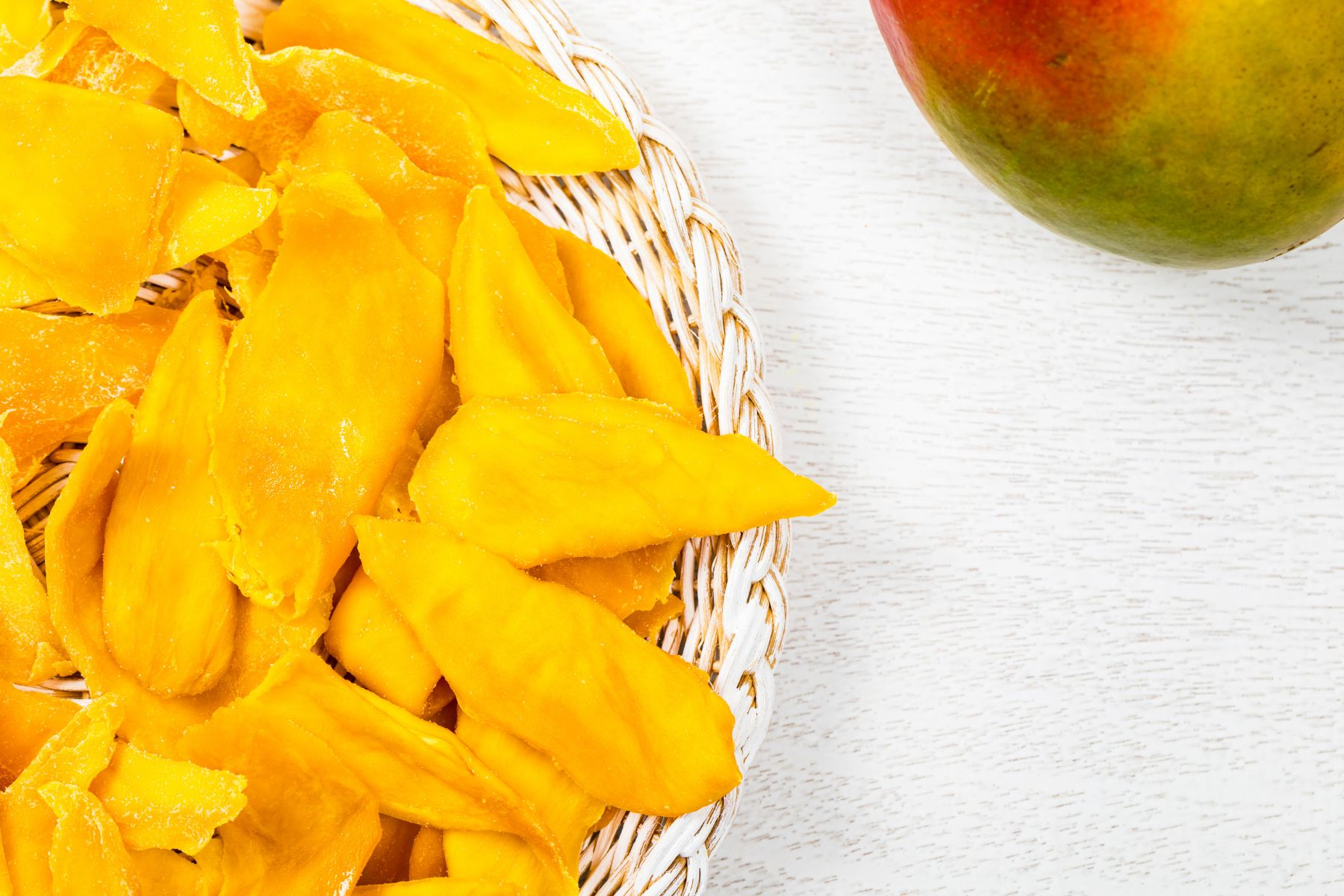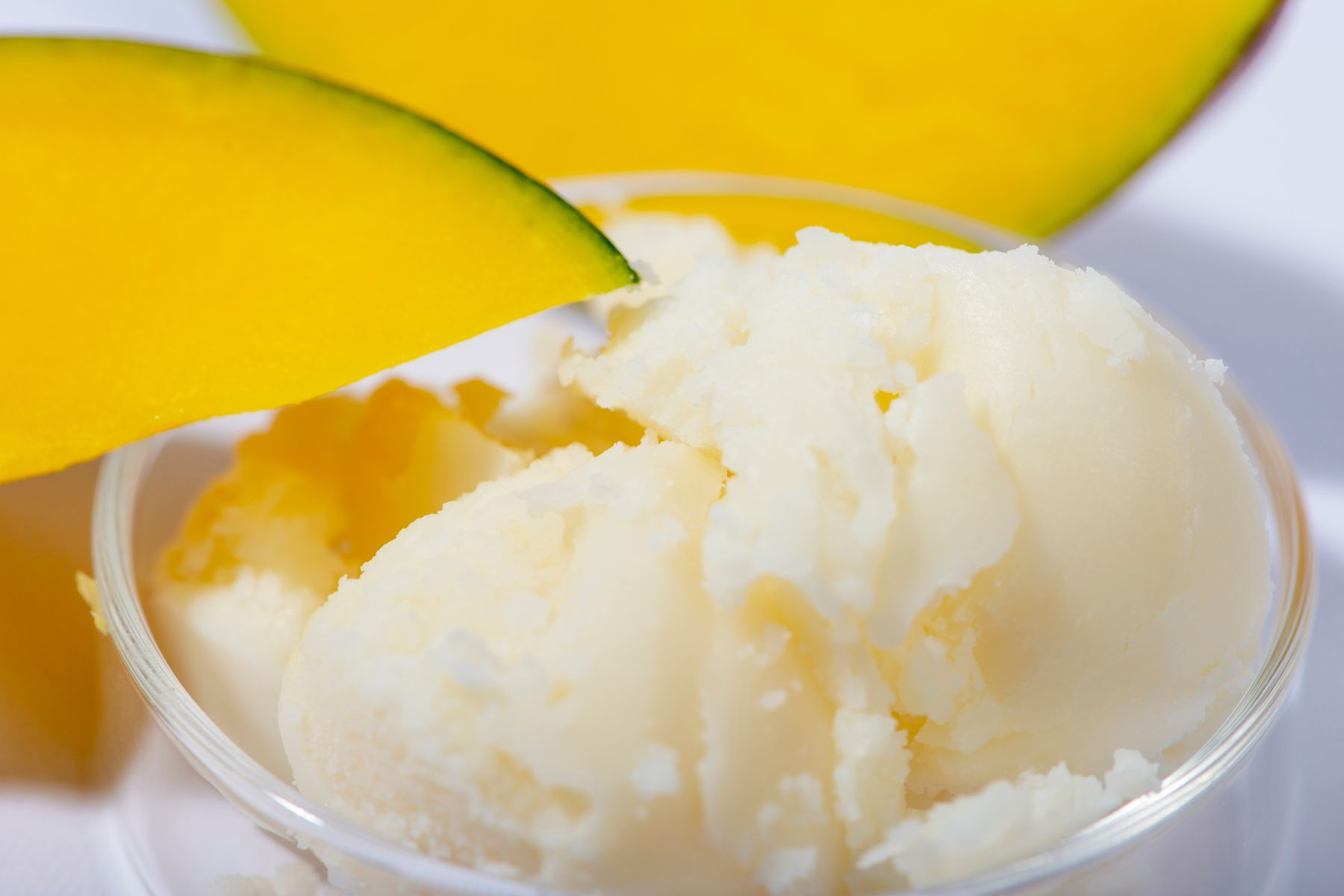Mangoes, with their succulent sweetness and vibrant flavor, have earned a special place in our hearts and kitchens. In this exploration of the incredible nutrition of dried mango, we uncover the magic behind this delicious dried fruit. Whether you're a mango enthusiast or simply curious about healthy snacking, join us on a journey through the health benefits, nutritional content, and potential risks of dried mango.
What Is a Mango?
Mangoes, scientifically known as Mangifera indica, are tropical fruits cherished for their juicy flesh and distinctive taste. These fruits belong to the Anacardiaceae family, which includes pistachios and poison ivy—thankfully, mangoes fall on the delicious side of this family tree.
Diverse Types of Mangoes
With over a thousand varieties worldwide, mangoes come in various shapes, sizes, and flavors. From the sweet Alphonso to the tangy Keitt, each type offers a unique taste experience. Exploring different varieties not only enhances culinary delights but also provides a diverse nutritional profile.
Exploring the Health Benefits of Fresh Mangoes
Before diving into the world of dried mango, it's crucial to understand the health benefits of its fresh counterpart. Mangoes are a rich source of vitamins, particularly vitamin C, which supports immune health. Including fresh mangoes in your diet contributes essential nutrients, making them a delightful and nutritious addition.
Drying Magic
What Does Drying Do to Mangoes?
The drying process transforms the succulence of fresh mangoes into the chewy goodness of dried mango. This preservation method removes the moisture, concentrating the flavors and nutrients. As a result, dried fruit becomes a portable, shelf-stable snack with an extended shelf life.
When comparing dried mango nutrition to its fresh counterpart, some differences emerge. While the drying process intensifies natural sugars, it also enhances the concentration of nutrients like fiber and certain vitamin C. However, it's essential to be mindful of added sugars in sweetened dried mango variants.
Decoding the Drying Process
To truly appreciate the magic of dried mango, understanding the drying process is key. Traditional sun-drying and modern dehydrating methods remove water content, intensifying flavors and preserving nutritional integrity. Opting for unsweetened dried mango ensures a snack that maintains its natural goodness.
Dried mango nutrition boasts a variety of essential nutrients, making it a nutrient-dense snack. A serving typically provides a significant portion of your daily value (DV) for calories, particularly vitamin A, which is crucial for skin health.
Delving into the Dried Mango Nutrition Label
Examining the dried mango nutrition label unveils a lot more than just sugar content. Rich in vitamins, minerals, and fiber, this dried fruit offers a well-rounded nutritional profile. Keep an eye on serving sizes to align with your dietary goals.
For those monitoring their carbohydrate intake, understanding the carb content in dried mango is crucial. While dried mangoes contain natural sugars, they also offer dietary fiber, contributing to a balanced snacking experience.
How Many Calories in Dried Mango?
Concerned about calorie intake? Dried mangoes, while calorie-dense, can be enjoyed in moderation. Knowing the calorie count per serving helps you incorporate this delicious snack into your daily diet without excess.
Are Dried Mangoes Good for You?

Dried mangoes, regarded for their nutritional value, serve as a commendable source of essential vitamins and minerals. The inherent sweetness of these dried fruits necessitates a balanced approach to consumption, with a keen awareness of added sugars for the sake of overall health.
Delving into the sweet dilemma, the question arises: do dried mangoes harbor excessive sugar content? While these dehydrated delights naturally contain sugars, the key lies in moderation. Sweetened variations, often found in the market, may carry additional sugar. Opting for unsweetened alternatives emerges as a wiser choice, promoting a healthier snacking habit.
The benefits of consuming dried mangoes extend beyond their delectable flavor. Research underscores their role as a rich source of essential nutrients, boasting significant amounts of vitamin A, vitamin C, and potassium. While further studies are warranted to comprehensively grasp their impact, incorporating dried mangoes into a diverse diet is acknowledged as a positive step towards overall well-being.
Yet, the question of quantity arises: how many dried mangoes should one consume? Portion control emerges as a pivotal factor in enjoying these dried fruits as snacks. Understanding the recommended serving size empowers individuals to strike a balance between relishing the delightful taste of dried mango and upholding a healthy dietary regimen.
Practicing moderation ensures that the nutritional benefits of dried mangoes are optimized without surpassing daily calorie requirements.
Health Benefits of Mangoes

Fresh mangoes are a nutritional powerhouse, delivering a plethora of health benefits when consumed in their natural state. Bursting with essential vitamins, minerals, and antioxidants, these succulent fruits contribute to overall well-being. The benefits range from promoting skin health to bolstering immune function, making fresh mangoes a versatile and delectable inclusion in a balanced diet.
Taking a closer look at dried mangoes unveils another dimension of health benefits. The concentration of vitamins and antioxidants in dried mangoes transforms them into a convenient and flavorful snack that complements overall nutritional goals.
Offering support for the immune system and skin health, dried mangoes provide a tasty way to elevate one's nutritional intake, adding both variety and convenience to dietary choices.
A comprehensive understanding of the spectrum of vitamins and minerals found in mangoes further underscores their nutritional value. From vitamin A, essential for vision and immune function, to folate, crucial for cell division, mangoes offer a diverse array of nutrients that contribute to optimal health.
This detailed exploration enhances the appreciation of mangoes as not only a delicious treat but also a valuable addition to a nutrient-rich diet.
Are Dried Mangoes a Healthy Snack?

Explore the reasons why dried mangoes can be a wholesome and satisfying snack option. The combination of natural sweetness, chewy texture, and nutritional benefits positions dried mangoes as a healthy alternative to traditional snacks.
In the quest for balanced nutrition, it's essential to be aware of potential risks associated with dried mango consumption. From added sugars to the drying process, understanding these factors allows individuals to make informed choices that align with their health goals.
As with any snack, moderation is key. Learn to strike the right balance, allowing you to enjoy the deliciousness of dried mangoes without compromising your health. Incorporating dried mangoes into a diverse and balanced diet ensures that you reap the nutritional benefits without excessive calorie intake.
Mango Butter: A Unique Mango Derivative

Beyond the world of dried mangoes, there exists a distinctive derivative known as mango butter. Extracted from the seeds of mangoes, this luxurious product boasts a texture and nutritional profile that sets it apart. Discover the diverse applications and benefits of mango butter in both culinary and skincare realms.
In comparing the nutritional content of mango butter to that of dried mangoes, a contrast emerges. While mango butter offers a creamy texture and a rich flavor profile, its nutritional composition varies. Recognizing these distinctions empowers individuals to select the mango derivative that aligns best with their culinary or skincare preferences.
The creative potential of mango butter extends beyond its nutritional attributes. Unlocking its versatility in both culinary creations and skincare routines reveals its capacity to elevate experiences. Whether enhancing recipes with a touch of decadence or nourishing the skin with its unique properties, mango butter adds a luxurious element to daily routines.
Experimentation with mango butter opens up a world of possibilities, allowing for exploration of its distinct qualities across various applications.
Conclusion
In conclusion, "Mango Magic" has taken us on a journey through the incredible nutrition of dried mango. From understanding the drying process to evaluating health benefits and risks, you're now equipped to make informed decisions about incorporating dried mango into your diet.
Whether enjoyed as a snack or explored in its various forms, the magic of mangos continues to captivate both taste buds and health enthusiasts alike. Embrace the richness of mango nutrition and savor the sweetness of a healthier snacking choice.

